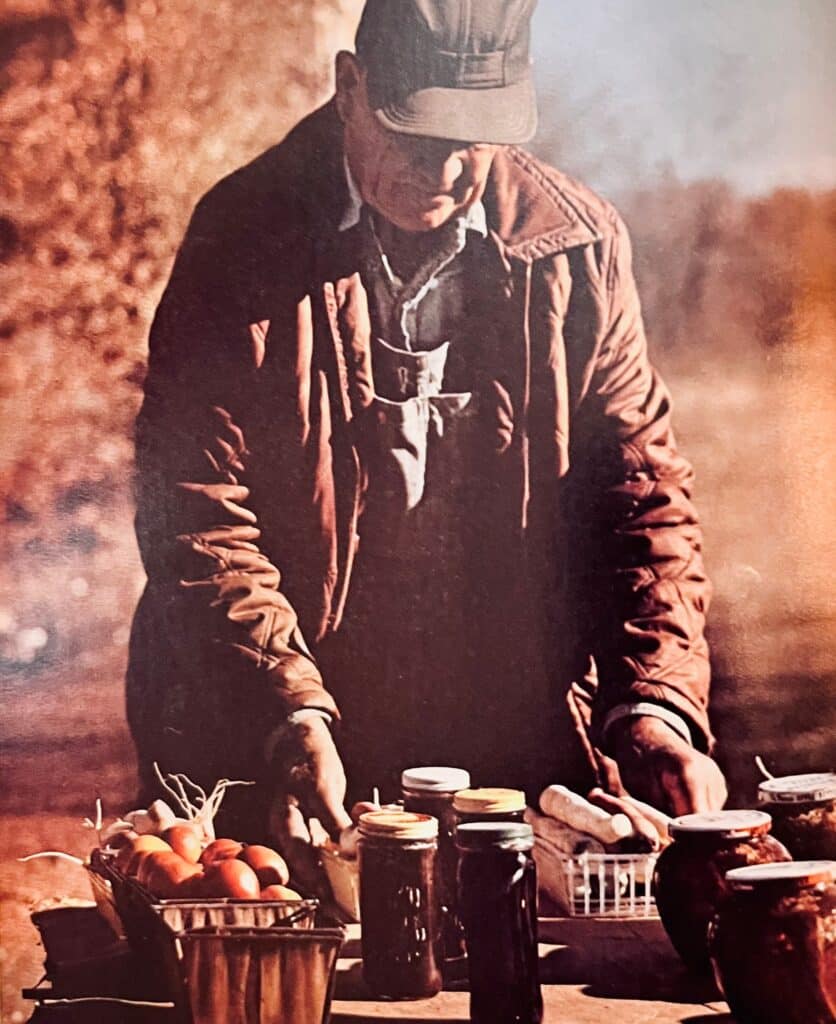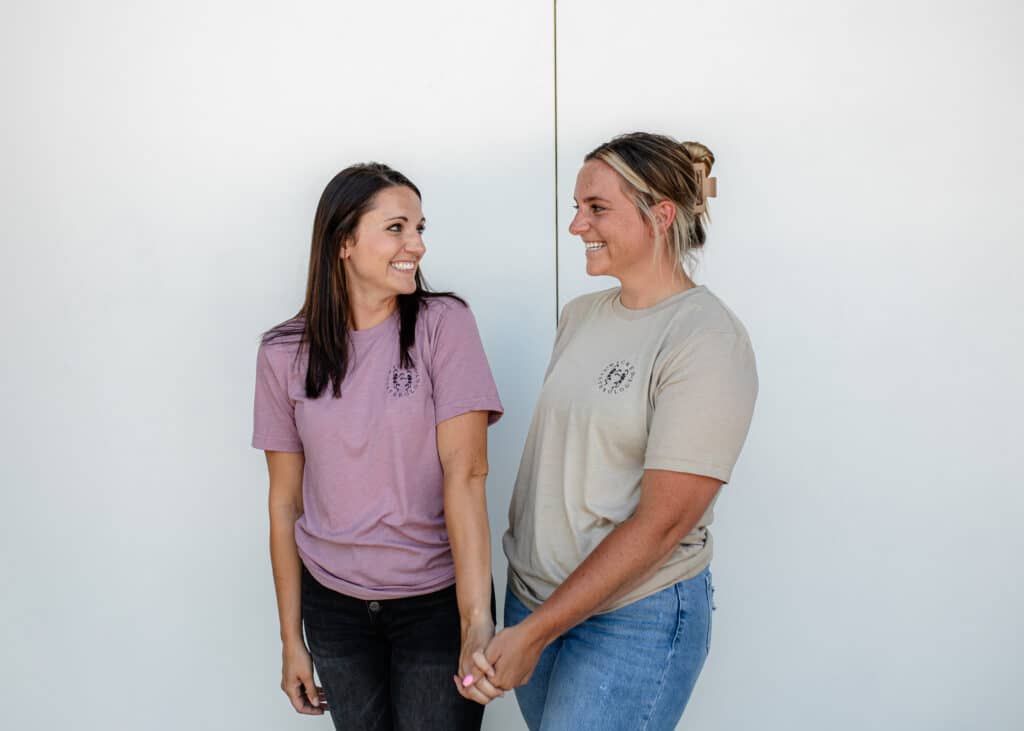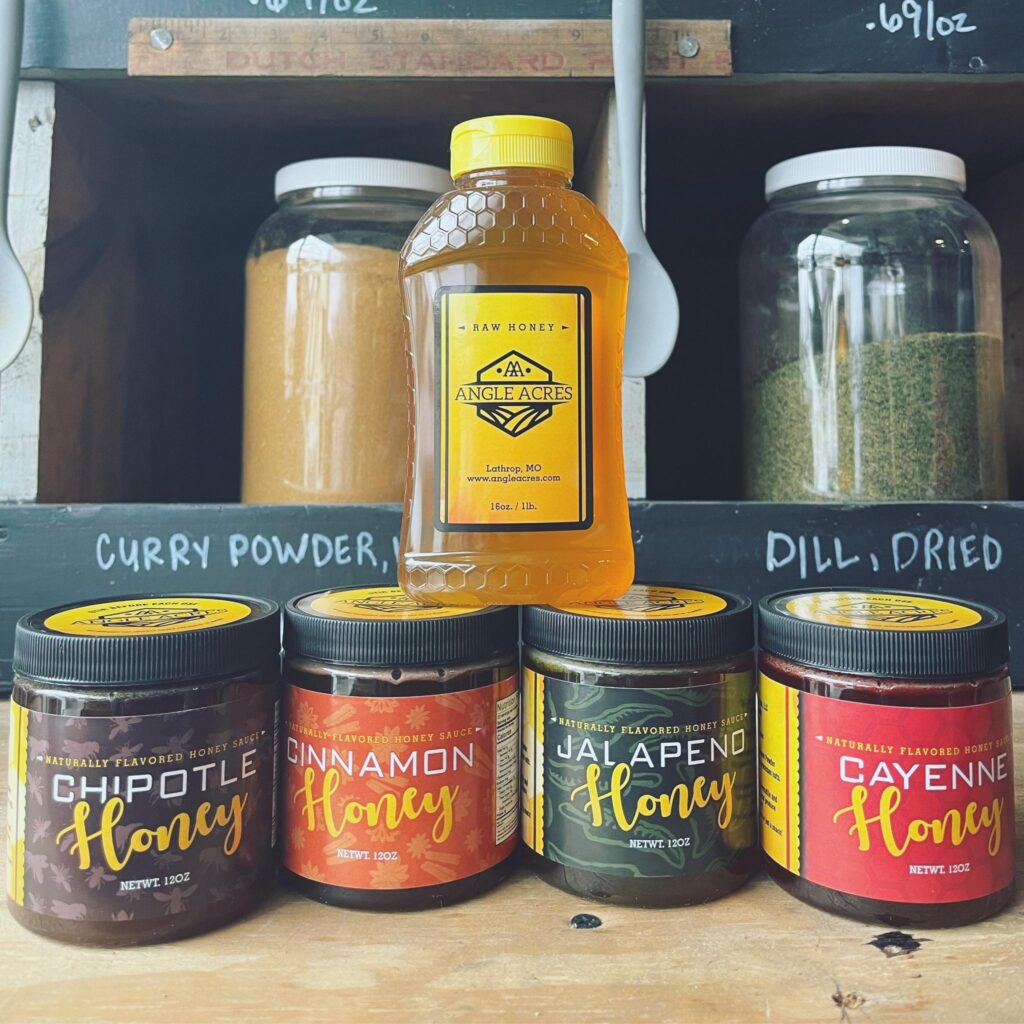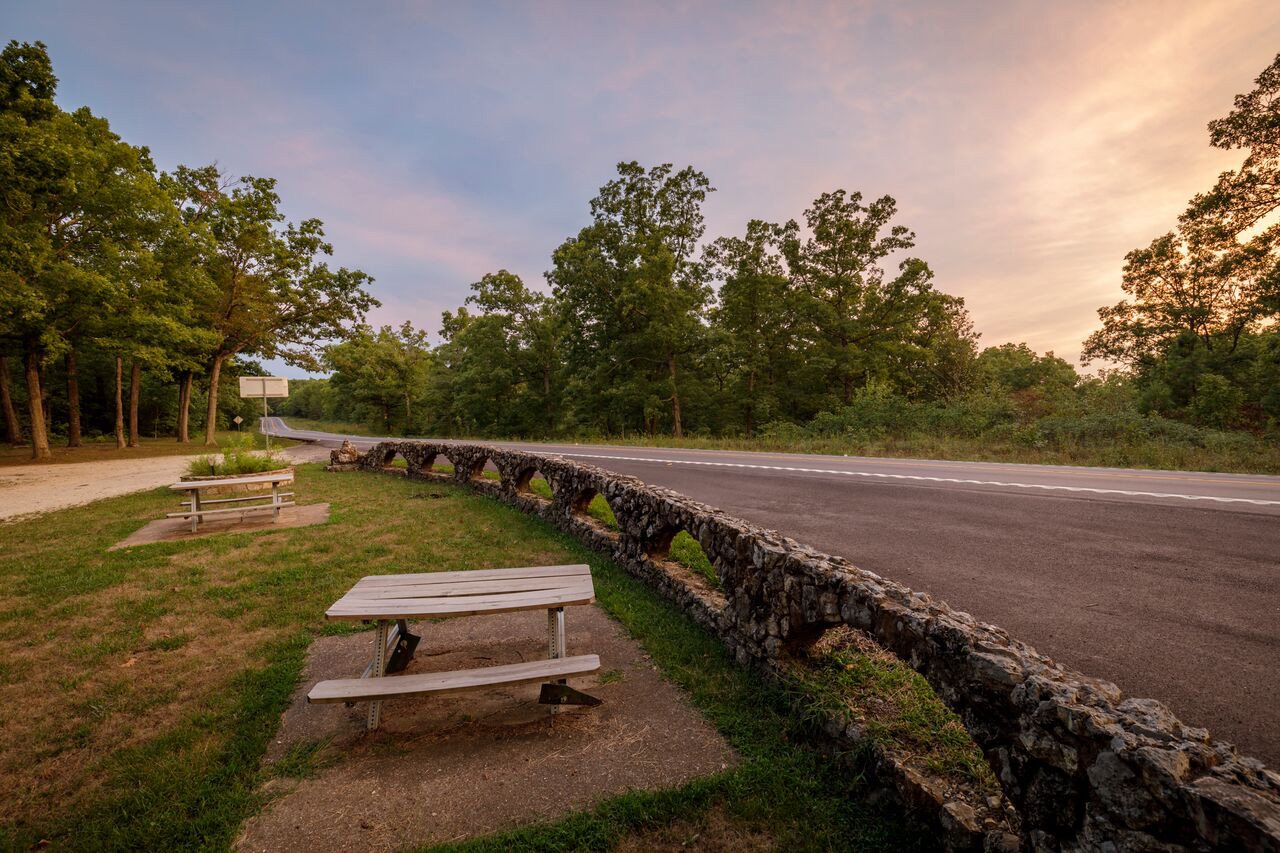Fifty years ago, we featured a story on Roadside Stands. Our September 2023 issue showcased entrepreneurs who took the roadside stand idea and updated it. Read the 1973 story, then meet two more businesses that transformed a time-tested formula.

By Walter Kaufmann and Glory Fagan
I ran a roadside stand a couple of summers and know how it is. Or was.
We sold the excess produce from the huge garden my father conceived of and oversaw each year and that my brothers and I dug, planted and hoed.
On the whole, running the roadside stand was better work than tending the garden, but it did have its trials. Sometimes you’d sit there for a day and a half, it seemed, and never move a turnip. Such service was, well, unexciting. Then there were the customers who wanted an even better deal than we were already giving them.
But also there was some interesting conversation and the thrill of making a sale and apparently making money. Although at the end of each summer, my brothers and I added it all up and amazed ourselves with the discovery that we had actually made very little.
The experience taught me a lot, though. There were, of course, the obvious lessons in thrift and enterprise, but there were less obvious lessons, too.
Our stand was located at a crossroads about a half-mile from home. The location looked so promising to our neighbors, the Harneds, that by the third week in June of the first summer we were in business, they were in business, too, right across the road from us, with a fireworks stand. When my fourth grade teacher explained to the class how Samarkand developed at a crossroads in the ancient trade routes, I had a fairly basic understanding of the process.
I later learned that at least one former roadside stand here in Missouri went on to bigger and better things. Soulard Market in St. Louis started as a roadside stand in 1779. Now it is thought to be the oldest market place in the United States that is still in use.
Another by-product of the annual venture was the engendering of a life-long interest in this summertime roadside phenomenon.
It was what is popularly called today, “a way of life.” Or “lifestyle,” if you want to really “get with it.” But it really was a way of life. Or perhaps more correctly, it was a way of living. For us and, I assume for many other people who ran these roadside stands, it was, if not a question of live or die, something close to it. We called it ready cash.
Not petty cash. Ready Cash.
Of course, the money from what we sold at our roadside stand wasn’t our big money crop. Wheat and corn were our moneymakers. But that roadside stand money eased the cash situation around the place. Of course, I found out later, some roadside stands were big outlets—big moneymakers—for farmers in many areas of the state. In the grape country around Rosati and St. James, and down in the southwest
Missouri orchard country around Marionville and Republic and on down around Ritchey, and up in the northeast corner where the Stark Brothers made apples almost synonymous with their name and up in the northwest with its corn and pecans – here roadside stands were big and busy and tallied up a large hunk of a farmer’s profit. And the Gumbo area east of St. Louis has long been famous for its roadside stands.
In fact, you could find them at one time all over Missouri.
A roadside stand, you see, is smart economics for the farmer. He avoids the cost of shipping his produce to a market and, at the same time, he cuts out the middle man’s profit. So he and the buyer both come out ahead. But this kind of happy situation depended on traffic—buyers going by the stand. That wasn’t any problem as long as we had our traditional two-lane highways, traffic going both ways. On a weekend, especially on a Sunday afternoon, a good roadside stand could line up parked cars on the right of way for blocks, maybe, on both sides of the highway.
The Interstate highway system, and limited access highways generally, took their toll on that kind of operation, though. In the interest of traffic speed, safety and all the good things that these highways brought, they also tolled the death knell for the roadside stands which operated along the nation’s limited access highways. No parking on the right of way there!
So we may be seeing the passing of a real slice of Missouriana. Certainly, the roadside stand business isn’t what it used to be. I remember talking, a year or so ago, to a fellow who ran a stand on US Route 60 near Fisk, where his father-in-law did before him. He was surrounded by pumpkins and squash and gourds of all sizes and shapes. And tomatoes and cantaloupes and cucumbers and green peppers and onions and watermelons. Everything that a real roadside stand ought to have, he had.
He motioned behind the stand toward a field. “New 60 highway’s comin’ through back there, though,” he said, “And it’ll be the end of this stand. But I won’t complain if I can have just five more years.”
He jerked a thumb toward the wavy-haired young man helping him. “By that time, I hope, I’ll have the boy here through college like his brothers, and maybe me and the woman’ll be ready for a rest.”
My interest has included, when at all possible, patronizing such concerns, whether they be bonafide stands or simply the tailgates of pickup trucks.
Thus, in this year of high food prices, I began searching for wayside vendors with the first tinge of red on the earliest tomatoes. My wife and I became regular patrons of a back-of-the-truck operator who located each weekend at the edge of town nearest our home.
As I remember, it was on our fourth trip out that we found the usual trading spot vacant. Fortunately, I remembered the fellow’s name. When we got home, I gave him a call.
“Sure, I remember you,” he answered. “Yes sir, I quit selling over here on Saturdays. Don’t need to. In fact, I can’t. I never have anything to sell. I got people calling me up asking to buy and driving out here to set the stuff. When I’m not sold out.
“No, I don’t have anything at the moment. Tell you what, though, I got some tomatoes just comin’ on and I expect to have some corn and beans in a few days. If you’d like me to save you some, I’d be happy to put you on my list.”
Imagine that: a roadside vendor dealing in futures. Of course, I told him to put me on his list.
Today, as I drive around the state and see the occasional roadside stand still open for business, be it a substantial shed by a large orchard, or just a rusty tailgate, I’m reminded of my days in that business and I think of myself. I know how it is in the wayside vending business.
Or, at least, how it was.

Roadside Stands 2023
By Glory Fagan
Wicked Sisterology Welcomes the World
Somewhere ages and ages hence, sisters Brittany Sego and Cameron Gage hope to be able to say with a sigh that of two roads that diverged in a wood, so to speak, they took the one less traveled by and that it has made all the difference. In this instance, the metaphorical route taken by Wicked Sisterology LLC is the internet superhighway for their online sales as opposed to a Main Street storefront. The small, local, graphic apparel shop and boutique located in Stanberry and owned by the sisters offers an online assortment of boutique items and apparel for businesses, schools, and personalization.
“Our business has plans to become a brick-and-mortar store in the future, but for small businesses just starting out, we actually believe that beginning online is the better route to take,” Brittany says. “By starting online, you don’t have all the expenses associated with a building. You’re able to build a social standing and customer base for your online business without the fear of losing your store by not having enough revenue coming in.”
Working out of their dad’s Stanberry crane business, the sisters appreciate being able to utilize a back area to store their merchandise. Customers can opt to come in to pick up their orders, but the space isn’t designed to display inventory. Established in September of 2021, Wicked Sisterology encompasses many family members beyond the eponymous sisters. Their mom and dad, and Brittany’s husband, to name three, but the sisters credit the entire Gentry County community for their success.
“Whether it be helping with all our kids or helping in the shop with big orders, we have a large support system,” Brittany says. “We use our own kids, family members, and close friends as our models for the attire and promotions. When we aren’t using our phones for our pictures, we use our grandmother’s neighbor, Brent Johnson, for our professional photographs. Our entire town of Stanberry, surrounding small towns, and all their businesses are considered by us to be ‘involved’ with Wicked Sisterology, as we wouldn’t have our own successful business without them. We are fortunate to have so many friends with their own businesses that allow us to set up inside for customers to be able to see what we have as well as try on any apparel.”
All sales are conducted online unless the business has a pop-up event or attends a vendor fair. Wicked Sisterology began with Brittany offering black and gold Bulldog spirit wear for residents of their hometown of Stanberry. The sisters joined forces after both had children, to expand their offerings. “Having a partner in business is something we highly recommend, whether beginning or already in business,” Brittany says. “There is no greater joy than reaching goals and growing together with a trusted family member or friend, especially a sibling.
“We love that our biggest customer base is from our small town of Stanberry. We will always accept cash from our events, friends and family, or from a Stanberry alumni who just happens to need a shirt for the parade. We were delighted the year this person just walked into our shop needing a Bulldog shirt. With our online presence through Shopify, we are able to accept PayPal, debit/credit card, and ShopPay (an option provided by Shopify).”
Reflecting on the business path the sisters have taken, Brittany said, “Though we haven’t been established for long, we do see a notable difference that social media can have on a business now. The bigger change, though, comes from being kids whose parents took you to mom-and-pop stores and only shopped local, to being adult business owners in a world that is all online. Businesses are basically required now to have a social media presence and a website if you don’t have a supportive enough community. Customers look to Facebook, Twitter, and Instagram for updates on business, new items, reviews, and where to find a business. If a customer can’t see from other online people and reviews that a business has a good standing and isn’t a scam website, they won’t shop there. We use multiple social media platforms and our website to address all those and show that we are real people with a real business.”
Despite their somewhat sinister-sounding name, the women run a faith-based business, faith in God, their hometown, and their business. “Our logo is a black and white logo with our business name circling two dancing skeletons,” Brittany says. “We chose to use the dancing skeletons for a couple reasons. One being we just really like skeletons. It seems odd that we would use skeletons then bring God into the equation, but the joy we have for life wouldn’t be possible without Him in our lives. Business, social media, friendships, and life can be hard, but with God, we will always find grace, forgiveness, and love, and be dancing with joy for Him for eternity.
“We also want our kids to grow up seeing that their mamas were able to be successful because of God, family, friends, community, and faith. If you don’t believe in your own business, why would anyone else believe in it?” she added. Knowing how way leads on to way, it’s doubtful the sisters will ever look back and change a thing.
WickedSisterology.com

Angle Acres Enjoys Sweet Success
Established in 2018, Angle Acres operates as both an online shop and traditional market out of its building in Lathrop, all with the help of more than 70 hives of bees. Husband-and-wife team Trevor and Molly Angle and their three home-schooled children harness the powers of bees to produce honey, make a line of flavored honey, and craft beeswax candles for their country store.
“People travel from as far as an hour away to visit our store,” Molly says. “We’re fairly new in the area and have a wide variety of locally made products.” Locally sourced meat, dairy, and eggs are also on the online menu at Angle Acres.
Raising kids with a strong work ethic and a solid foundation of faith is important to the Angles, and they are setting an example by being good stewards of their community. They have joined the Oak Street Market, a nonprofit farmers’ and makers’ market, where Angle Acres has helped the Lathrop community raise funds for betterment projects through the sale of their bee-loved inventory. Molly is first to endorse “Shop Lathrop” campaigns with her “shop small, support local” mindset. One of their customers, Mitch Hoover, said of Angle Acres, “Lots of spices, fresh produce, home-grown honey, and great folks!
In July, Angle Acres held a customer appreciation event to celebrate the second anniversary for their family-based, specialty grocery business. Every week, Molly hosts live video promotions on Facebook to let their fans know about new products, such as Shark Week tea and Java Without the Jitter.
The Angle Acres website allows for online ordering, and serves up firsthand stories from farm, life, and home, along with beekeeping tips and uses for honey.
619 Oak St., Lathrop, AngleAcres.com
Article originally published in the September 2023 issue of Missouri Life.
Related Posts
Opathleyahola’s Stand: A Web Extra
Our July/August 2023 article, “In The Fight,” showed that the divisive nature of the Civil War extended to American Indian Tribes. Read about Opotheyahola, who refused to join the Confederacy, then explore our reading list to learn more.
Unique Dip Will Stand Out at Holiday Parties
This unique dip comes from the former Eden’s Alley, a restaurant that had a long run, a quarter of a century in Kansas City, before closing. Eden’s Alley still shares their plant-based recipes on their website, which still supports and promotes plant-based diets and whole foods, minimally processed.
See Our Vanishing Roadside Parks
After some investigating, I found Karen Daniels, senior historic preservation specialist for the Missouri Department of Transportation. She’s the expert on the state’s roadside parks.



